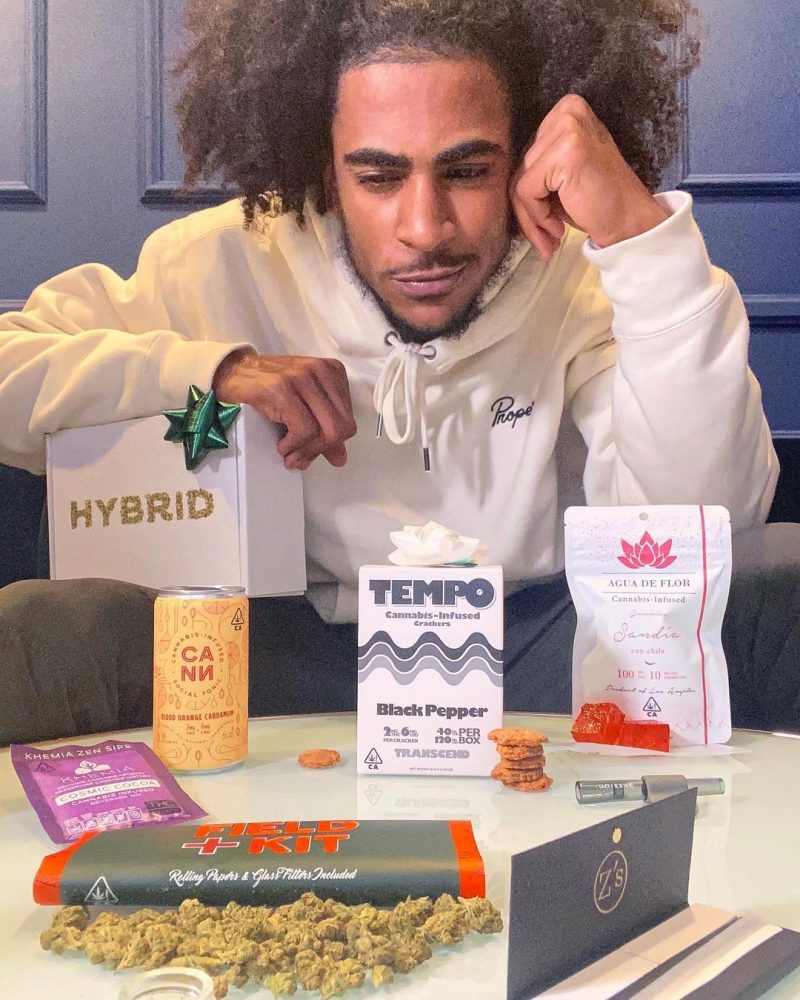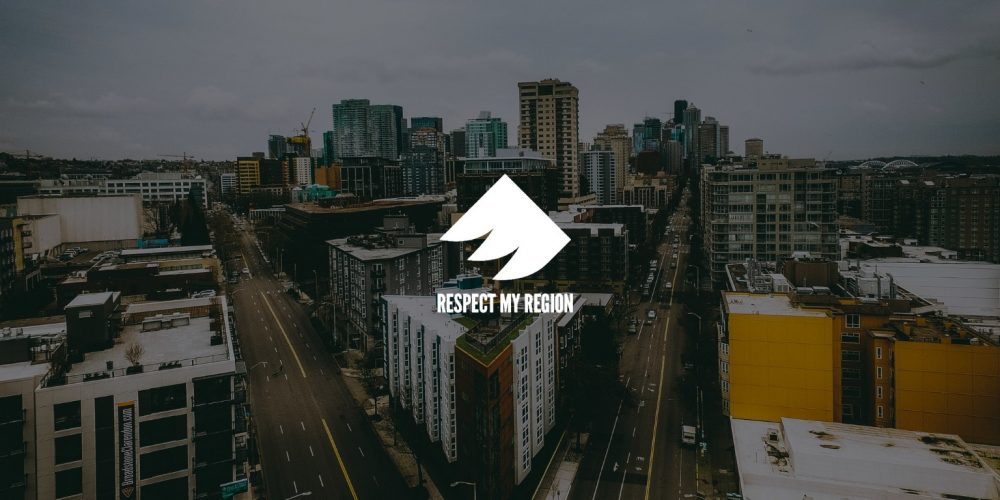The cannabis industry has become a beacon of innovation and opportunity, particularly highlighting the significant contributions of black-owned dispensaries, brands, and pioneers. One of the remarkable individuals shaping the future of cannabis is Nadir Pearson.
His inspirational journey and achievements within this evolving space have helped him make his mark in the industry. His entrepreneurial spirit and advocacy for BIPOC students in the cannabis space provide opportunities for other people of color and we are blessed because he shared his unique story with us. Today we’re going to talk about his cultural upbringing to becoming a respected figure in the cannabis industry.

Pearson’s Roots
Growing up in a Puerto Rican household, Pearson was immersed in a culture where cannabis was a subconscious presence. His father didn’t smoke much around him, but his mother had her ways of enjoying the plant “discreetly.’
“It’s funny because I eventually figured it out that my dad wasn’t really smoking that much weed when I was around, because I didn’t live with him,” he said.
“But my mom- I had one story where like, I got into my friend’s car- and this is when I’m like 15-16 or so… and I’m like, ‘This smells like incense,’ he’s laughs and he’s like ‘No, it doesn’t smell like incense it smells like weed.’
It kind of just felt like a sensory flashback for me when I was younger because that’s how my attic used to smell. My mom used to burn incense, but sometimes it just smelled like weed,” he added.
“It kind of always had that lingering attic, incense, weed smell, you know? So it was just something I didn’t realize growing up. But as I got older, I started to connect the dots because I knew what to look for because I was smoking.”
But his true introduction to the cannabis industry didn’t start until he went to college at Brown University. Initially interested in their football program, he achieved more from his academic journey.
Brown University
As a student-athlete, he got a medical card in Providence, RI, for injuries from high school and freshman year at Brown.
“On my freshman year, I had to stop due to concussions,” he said. “And that pivot gave me an idea like, what am I gonna do with my life?” he said. “Like, I have so much more free time. You know, like, what should I do with my time? And going to Boston and working on my craft in terms of video editing and content creation back then was where I diverted my passions, my energy, my time.”
Those passions garnered connections with BIPOC leaders like Dr. Octavia Wiseman and her daughter Hope Wiseman, the Mary and or Main Dispensary founders in Prince George’s County, Maryland, and Wiseco. Hope was also the youngest Black woman to own a dispensary in the country.
“Back in 2018 or so, when I first met her, that was like a huge headline and accomplishment for the industry and for the culture, and that was when I met her at Women Grow back in 2018.”
Pearson built connections by attending events like the Boston Freedom Rally and covering Women Grow events. Since their meeting, his bond with Hope evolved into a friendship and partnership; culminating in his role as Vice President of Business Development at Wiseco.
The SMART Alliance
At Brown and before joining Wiseco, Nadir identified a shortage of educational resources on marijuana. He wanted to establish a student-only marijuana organization despite an existing campus group focused on broader drug policies.
“Brown already has SSDP, the Students for Sensible Drug Policy. And the only thing about them is they talk about all types of drugs. I was like, no, let’s talk about cannabis,” he said.
He proposed a cannabis-exclusive chapter aimed at professional development, not enforcing Brown’s drug policies. Pearson initiated the alliance by petitioning signatures from students on campus.
“SMART was a student organization. On campus, we got signatures by walking around and asking if [the students] would be interested in this being something for the campus,” he said. “It was only 25 [signatures], but I was talking about weed, so I was like, let’s get 100, to be like, ‘Look, I got 100 people that say they would do this.”
After completing the necessary paperwork to create the student organization, he created an LLC around his initiative. Soon after, he received invitations to speak at various college conferences to showcase SMART.
The alliance has since expanded to over 50 universities. It provides students with a source for cannabis-related jobs, resources, and events, all connected through the #collegecannabis.

Hybrid App
The creation of the Hybrid app was a much-needed asset in Cannabis culture! The app connects the community closer through exclusive looks at new strain drops, events, and dispensary openings. Inspired by sneaker culture, Nadir and his team created a platform for cannabis enthusiasts to stay updated on product releases. “I’m trying to see what’s dropping, what’s cool, and what’s new,” he said.
After three years of development, their aspirations for the app are gradually becoming a reality. Hybrid functions as a calendar, tracking new releases and product drops from cannabis brands.
The app addresses a key issue: many cannabis brands struggle with social media restrictions, like page reporting and shadow bans. The app enables brands to safely market their products and keep cannabis enthusiasts updated on their new releases.
Enthusiasts can then bookmark their favorite brands and stay informed about their latest releases.
“Not being able to keep track of all those things because everybody was shadow banned was really (what inspired) this as an avenue for us to create a hub for people to discover what I’m already recommending to people myself; and facilitate people sharing products with each other,’ Nadir said.
Soon available on Apple and Android, the app’s mailing list still keeps enthusiasts updated on any new and upcoming drops as well as updates on the app’s release on IOS available on the Apple store, brands and influencers are in close contact with each other.
Reflections and Advice
Pearson candidly shares the challenges of entrepreneurship, particularly in the tech and cannabis spaces. While he humorously advises against app development due to its complexities, his broader message encourages perseverance and the pursuit of one’s passions despite obstacles.
“I definitely don’t suggest making apps,” he said. Building an app is very specific, and if you’re trying to do what we do in terms of building something that’s pretty widespread in the space, it’s hard.”
He clarifies that although the process may initially be expensive and challenging to profit from, he still urges determined individuals to pursue their passions, “I still encourage people to follow their dreams, but don’t listen to me, a lot of people are better than me at certain things like this.”
Nadir Pearson’s journey through the cannabis industry exemplifies the impact of perseverance, innovation, and community.
As the cannabis landscape continues to evolve, stories like Pearson’s are vital for inspiring future generations and highlighting the significant contributions of Black entrepreneurs in shaping the industry’s future.
More CBD Content
DOES CBD REALLY DO ANYTHING?
CBD 101: EVERYTHING YOU NEED TO KNOW ABOUT SMOKING CBD FLOWER
WHEN SHOULD YOU TAKE CBD? A GUIDE TO DOSING DURING THE DAYTIME
CAN CBD HELP WITH ANXIETY OR DEPRESSION?
BEST CBD OIL FOR DEMENTIA: TRY THESE FULL-SPECTRUM CBD TINCTURES
CBD AND MELATONIN: HOW THEY MAY WORK TOGETHER TO CREATE DEEPER SLEEP

FOR MORE CANNABIS NEWS, FOLLOW RESPECT MY REGION ON FACEBOOK & TWITTER.
TO HAVE A STORY FEATURED OR YOUR BRAND OR PRODUCTS REVIEWED, PLEASE EMAIL US.
Discover More Hip-Hop
RMR INTERVIEWS MEMPHIS RAPPER NLE CHOPPA
SOULS OF MISCHIEF CELEBRATES 30 YEARS OF ’93 TIL INFINITY
10 LEGENDARY LATIN RAPPERS THAT PERMANENTLY INFLUENCED HIP-HOP
GRAMMY-NOMINATED SEATTLE PRODUCER KID CULTURE STEPS IN FRONT OF MIC ON “KEEP IT”








![Understanding Vinyl Record Grading: A Complete Guide for Collectors-- [Photo by Bojan Marjanovic on Canva.]](https://respectmyregion.com/wp-content/uploads/2026/02/image-500x333.jpeg)